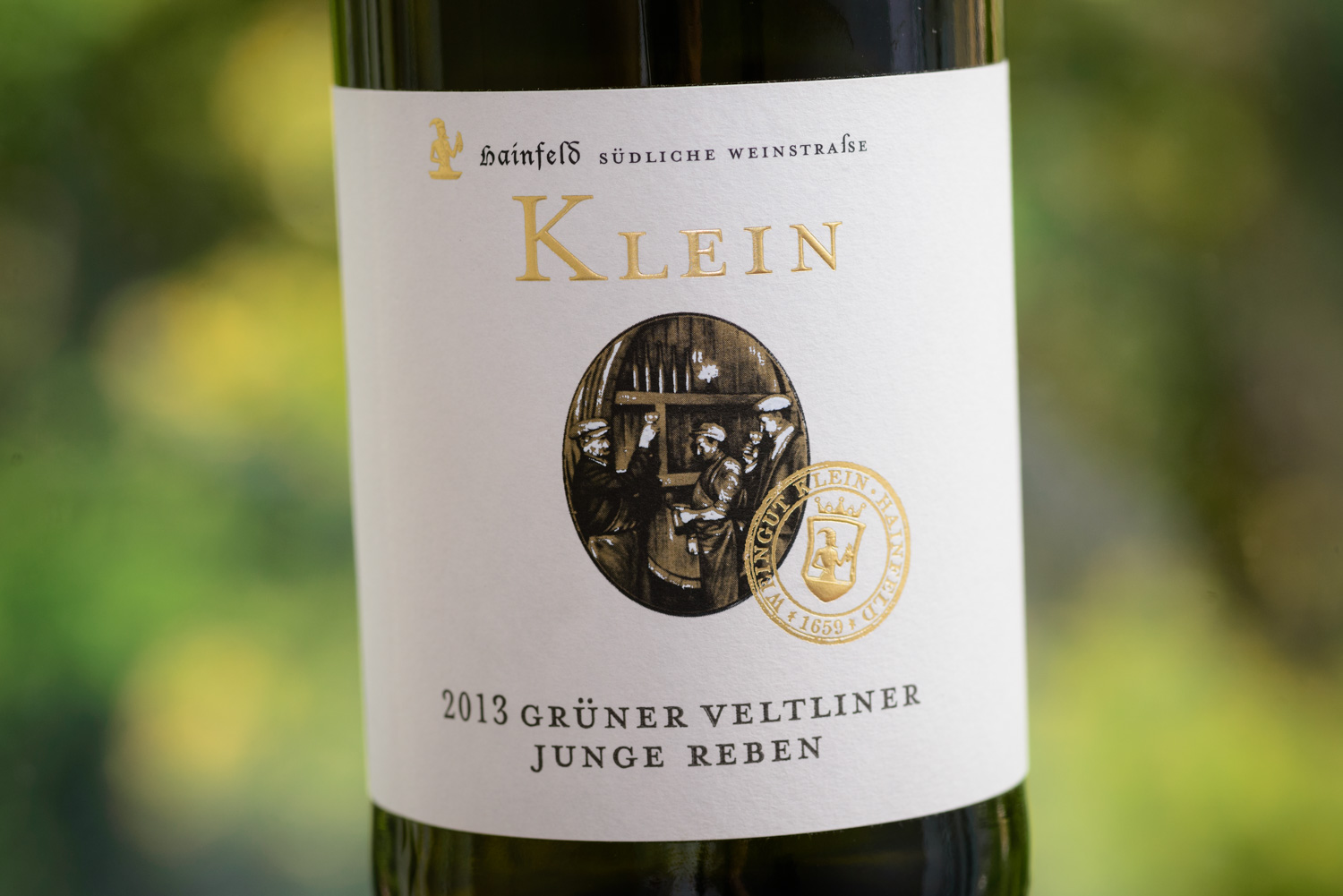Gerhard Klein, Grüner Veltliner, Junge Reben, 2013
It's been a busy few months for me. Almost all of June I spent on the road, or at events in London. So to ease myself back into blogging I thought I write about a nice little wine, nothing extraordinarily expensive or with a long and complicated backstory. There is, after all, a place for those wines that are there just to be enjoyed.  When I unscrewed Gerhard Klein's Grüner Veltliner I hoped it would be one of those quiet, enjoyable companions. And it was. With a little twist...
When I unscrewed Gerhard Klein's Grüner Veltliner I hoped it would be one of those quiet, enjoyable companions. And it was. With a little twist...
The twist is staring you right in the eye: a Grüner Veltliner, but from Germany. The Grüner Veltliner you will know is the signature grape of Austria, a wine that has gained international recognition for its tangy freshness. It is very rare to find it in Germany - as far as I am aware it is planted on less than 20 ha - the Austrians are growing a thousand times as much. The little German Grüner comes from the Pfalz, a region that I am fond of because of the variety of wines it produces. Gerhard Klein seems to embrace this approach, amongst the more common Rieslings and Pinots his family also grows Grüner Veltliner, Syrah and Cabernet Sauvignon on the clay and loam soils near Hainfeld. Klein's white wines are usually made in stainless steel, with the top Rieslings being fermented naturally.
The Grüner Veltliner is labelled as "Junge Reben", or "young vines", from a vineyard that became fully operational in 2010. The wine has a light straw colour, with a greenish tint. Light is also the word that features most often in my tasting notes. A fresh, light and tangy wine with lively acidity and a well-rounded finish that blends spice, freshness and a touch of bitterness - a nice contrast to the melon, apple, spice and blackberry aromas and flavours that are seasoned with herbal undergrowth. Klein's Grüner Veltliner delivers exactly what you'd want from a wine of this type in this price range. It would not be fair to compare it to the more complex Veltliners that Austria produces these days, but then these wines are also more expensive. In its price range it does not do badly though. It will be interesting to see what wine Klein will produce when the vines are ready to be called old. For now anyway there is no reason to give up on Austrian Veltliner, but equally if you can find a German specimen like this one I think you would enjoy it as much.
